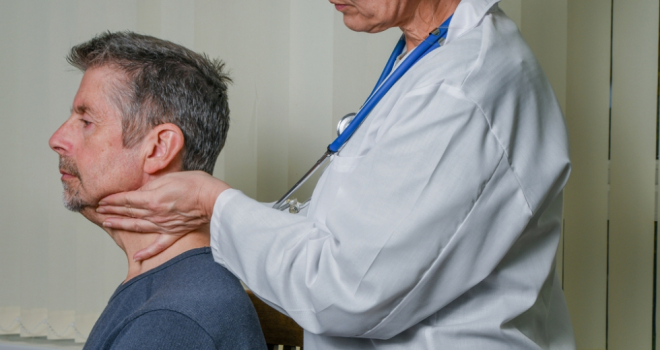
"Ultimately, we want to see a situation where this improved level of awareness turns into greater accessibility and attendance which could prove a step change for the long-term health of the nation."
- Emily Jones, Client Consulting Director at Broadstone
Earlier this year, Broadstone’s analysis of the latest Office for Health Improvement & Disparities data revealed that 2.1mn people in the UK missed out on NHS Health Checks in 2023/24 – 3.6mn people were invited. Notably, this figure is 19% (347,628) higher than in 2022/23.
A decade ago, 49% of 2.8mn invitees attended NHS Health Checks. Since then, attendance has dropped by 9% between 2023/14 and 2023/24. On a weekly basis, that’s an average of 41,080 people missing out on their Health MOT in 2023/24 compared to 27,630 each week in 2013/14.
At the time, Emily Jones, Client Consulting Director at Broadstone, said “NHS Health Checks are a vital first line of defence against more serious, chronic illnesses, and so it’s disappointing that uptake remains low despite efforts to invite more people. Prevention is better than cure and NHS Health Checks offer the opportunity to identify health issues at an early stage thereby keeping people healthy, active, and productive.”
READ MORE: Broadstone disappointed at low uptake in NHS Health Checks despite rise in invites
Earlier this month, the Office for Health Improvement & Disparities released its latest data on NHS Health Check invites and uptake between April-June 2024. Less than half (36%) of those invited went to their NHS Health Check, compared to 44% in the same period of 2019 and 48% in the same period of 2013.
Despite low uptake, the number of people invited rose to 941,908 between April-June 2024 – bringing invitation levels to a record 9.27mn. Emily has (again) stressed “Thanks to the early identification of underlying health risks like high blood pressure, NHS Health Checks are a crucial first line of defence against more serious, chronic illnesses such as heart disease, cancer, type 2 diabetes, and liver cancer.”
She thought the “disappointing stagnation in uptake in recent years could be due to time constraints, difficulty in contacting or accessing the local GP practice, anxieties around diagnosis, or simply a lack of awareness about the long-term health benefits of attendance.
“With the government recently announcing that a digital version of the NHS Health Check is being trialled in early 2025 and that it’s considering alleviating the burden of preventable deadly diseases on the NHS via new outdoor smoking rules, it’s clear that prevention is at the top of the Health Secretary’s agenda.
This push for preventative, primary care is becoming the focal point of corporate health and wellbeing programmes and as the private healthcare market continues to grow, we expect to see further innovation in this sector,” she added.
In July, Clarity Health Insurance released Google search data analysis of several insurance-related phrases. Obtained via SEMrush, Clarity found that 14,800 people now search for ‘Private Health Insurance’ online every month, compared to 8,100 people in June 2021. Searches for ‘Health Insurance’ have also increased by 50%, rising to 6k.
Exclusively given to Protection Reporter, Clarity revealed 9.9k adults in the UK are searching for ‘NHS Health Check’ every month (as of July 2024) compared to 4.4k in June 2021 – that’s an increase of 125% in three years.
Meanwhile, ‘NHS Health Check Over 40’ searches have risen by 85% and ‘Free NHS Health Check’ has surged by 417% over the same period. ‘NHS Lung Health Check’ searches have increased by 3,800% since June 2021 – ten searches to 390.
“It’s a positive that more people are investigating ‘Health Checks’ and doing their research. However, official figures show us that is still not translating into enough people attending a Health MOT, which could be invaluable for diagnosing issues at an early stage so that they can be treated & resolved,” Emily observed.
She said: “Whether that is because they’re struggling to source appointments at a time that works for them, are unconvinced of the benefits, or simply don’t get around to attending, it remains a concern.
“Ultimately, we want to see a situation where this improved level of awareness turns into greater accessibility and attendance which could prove a step change for the long-term health of the nation,” Emily concluded.
